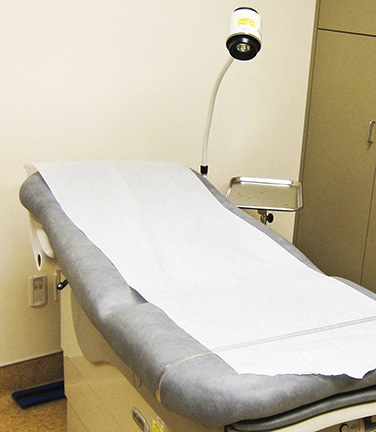If you or a loved one has been injured by a doctor or hospital, Call the Medical Malpractice Crisis Resource Line for Immediate Help >
Free Consultation. Call Now. (516) 394-4200
(516) 394-4200

There are risks inherent in most surgical procedures. Accordingly, doctors and other health care professionals are required to inform a patient of the possible dangers and complications that may occur. Only after a patient gives “informed consent” is the procedure to take place.
Unfortunately, sometimes members of the medical profession do not give the patient enough information to properly weigh the potential risks against the possible benefits of the surgery. When this happens, a patient may be able to file a medical malpractice case to seek compensation for injuries resulting from the procedure.
The Facts of the Case
In Bradshaw v. Lenox Hill Hospital, the plaintiff was a woman who had undergone a procedure at Lenox Hill Hospital. She filed suit against the hospital and a doctor, alleging that a nurse who was employed by the hospital had inserted a catheter into her femoral artery incorrectly and without her consent. According to the patient’s complaint, the nurse deviated from the accepted standard of care because she inserted the catheter at too high a point in the patient’s artery.
The defendants sought dismissal of the claim, urging that the patient had failed to show either a departure from the standard of care or causation. The patient countered the defendants’ motion for summary judgment with an expert’s opinion that the catheter in question had, in fact, been incorrectly inserted and that such was shown by ultrasound imaging. She also averred that a CT scan revealed evidence of retroperitoneal bleeding as a result of the procedure. The patient also offered an expert’s opinion that the defendant doctor failed to properly document the site of the puncture and that this contributed to the patient’s injuries because it delayed her having the vascular surgery that was need to prevented femoral compression.
The Trial Court’s Decision
The trial court denied the defendants’ motion for summary judgment, and the defendants appealed.
On Appeal to the Appellate Division, First Department
The court unanimously affirmed the trial court’s decision not to dismiss the patient’s medical malpractice suit. In so holding, the court noted that the defendants did not dispute that the hospital could be held vicariously liable for the nurse’s negligence and that the patient presented an issue of fact as to whether the hospital was liable for the actions of the doctor and others employed by his professional corporation. The court further opined that the defendants had failed to make a prima facie showing that the doctor sufficiently advised the patient about the risks of the surgery or possible alternative procedures. Because the patient claimed that she told the nurse who was prepping her groin area for the procedure that the access was supposed to be through a different artery (in her wrist), there was an issue of fact as to whether the hospital should have known that the patient had not given informed consent to the femoral artery access point.
To Speak to a New York Medical Malpractice Attorney
If you or a family member has been injured by an act of medical malpractice in New York, you need to speak with an attorney sooner rather than later. New York law imposes strict deadlines for filing a lawsuit against a medical provider, and failure to comply with this deadline will prevent any recovery in most situations. To schedule an appointment to speak to a member of our experienced legal team, call Duffy & Duffy at (516) 394-4200. We represent clients throughout the Long Island area, including Kings and Queens.
No. Our injury cases are handled on a contingent retainer. You pay nothing upfront, and we recover attorney’s fees only if your litigation is successful. We don’t bill by the hour. You don’t need to worry about running up a large attorney’s bill before you see any recovery for your injuries.
Yes. Our firm is dedicated to creating a strong relationship with our clients, beginning with keeping your information and consultation confidential.
Each case we encounter is carefully screened and evidence scrutinized to make sure the claim is meritorious and may be successful at trial. We will perform an investigation, and then our partners make a final decision on whether to take on a case.